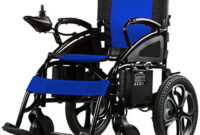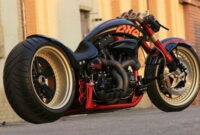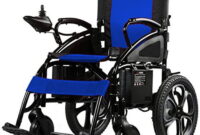Crew Cab Box Trucks For Sale: Your Comprehensive Guide to Hauling Both Crew and Cargo pickup.truckstrend.com
In the dynamic world of logistics, construction, landscaping, and countless other industries, efficiency is king. Businesses and individuals constantly seek solutions that optimize operations, save time, and maximize utility. Enter the Crew Cab Box Truck, a versatile workhorse designed to meet the dual demands of transporting both personnel and substantial cargo simultaneously. Far more than just a standard delivery vehicle, these trucks offer a unique blend of capacity, comfort, and customizable functionality, making them an indispensable asset for a wide array of applications.
This comprehensive guide will delve deep into the world of crew cab box trucks for sale, exploring what makes them stand out, who benefits most from their capabilities, crucial factors to consider during the purchasing process, and where to find the best deals. Whether you’re a burgeoning business owner, a seasoned fleet manager, or an individual with unique hauling needs, understanding these robust vehicles is the first step towards making an informed and impactful investment.
Crew Cab Box Trucks For Sale: Your Comprehensive Guide to Hauling Both Crew and Cargo
What Exactly is a Crew Cab Box Truck?
At its core, a crew cab box truck is a specialized commercial vehicle characterized by two primary components: a crew cab and a box body, mounted on a sturdy truck chassis.
- The Crew Cab: Unlike a standard single-row cab, a crew cab (also known as a double cab or quad cab) offers multiple rows of seating, typically accommodating 4 to 6 passengers comfortably, sometimes even more depending on the configuration. This extended cabin allows for the transportation of an entire work crew, sales team, or even a large family, eliminating the need for a separate passenger vehicle.
- The Box Body: Attached to the chassis behind the crew cab, the box body is an enclosed cargo compartment. These boxes are designed for secure, weather-protected transport of goods, tools, equipment, or materials. They come in various lengths, widths, and heights, often featuring roll-up or swing-out rear doors, and can be customized with shelving, lighting, ramps, or liftgates to suit specific needs.
This combination sets crew cab box trucks apart from traditional pickup trucks (which lack enclosed cargo space for large items) and standard box trucks (which typically only have a single-row cab). Their unique design makes them ideal for scenarios where both manpower and significant cargo capacity are essential.

Who Needs a Crew Cab Box Truck? Ideal Applications
The versatility of crew cab box trucks makes them invaluable across a broad spectrum of industries and for specific personal uses. Here are some of the primary beneficiaries:
- Construction & Contracting: Hauling a team of builders, plumbers, electricians, or roofers along with their tools, materials, and specialized equipment directly to the job site.
- Landscaping & Tree Services: Transporting groundskeepers and all necessary mowers, trimmers, blowers, and debris.
- Moving & Delivery Services: Perfect for local moves or delivering large appliances, furniture, and other bulky items, especially when a team is required for loading/unloading.
- Event Management & Catering: Moving staff, staging equipment, sound systems, food, and serving supplies for festivals, concerts, and large gatherings.
- Mobile Workshops & Service Technicians: Enabling a team of mechanics or technicians to travel with all their diagnostic equipment, parts, and tools directly to client locations.
- Film & Television Production: Transporting crew members, camera equipment, props, and set pieces efficiently between shooting locations.
- Emergency & Disaster Response: Serving as mobile command centers or support vehicles for rescue teams, carrying personnel, supplies, and communication equipment.
- Fleet Management: Many larger companies integrate these trucks into their fleets for multi-purpose utility, optimizing logistics.
- Personal Use: For large families, hobbyists, or those with extensive DIY projects, these trucks can transport family members and large items like ATVs, camping gear, or building materials.


Key Considerations When Buying a Crew Cab Box Truck
Purchasing a crew cab box truck is a significant investment. Careful consideration of several factors will ensure you select the right vehicle for your specific requirements.
-
New vs. Used:
- New: Offers the latest technology, full warranty, and often better financing options. Higher initial cost but predictable maintenance.
- Used: Significant cost savings, quicker depreciation already occurred. Requires thorough inspection and understanding of maintenance history. Ideal for budget-conscious buyers or those needing a specific older model.
-
GVWR (Gross Vehicle Weight Rating) & CDL Requirements:
- Understanding the truck’s GVWR (the maximum loaded weight of the vehicle) is crucial. Trucks with a GVWR over 26,000 lbs (Class 8) or those designed to tow trailers over 10,000 lbs may require a Commercial Driver’s License (CDL) in the U.S. and similar licenses in other regions. Always verify local regulations.
- Crew cab box trucks typically fall into Class 3 (10,001-14,000 lbs) to Class 6 (19,501-26,000 lbs), often not requiring a CDL unless combined with a heavy trailer.
-
Engine & Drivetrain:
- Diesel vs. Gas: Diesel engines offer better fuel economy for heavy loads, higher torque, and longer lifespan, but often have higher upfront costs and more complex maintenance. Gas engines are generally cheaper to buy and maintain, with readily available fuel.
- Transmission: Automatic transmissions are common for ease of driving, while manual transmissions can offer more control and potentially better fuel efficiency for experienced drivers.
- 2WD vs. 4WD: Most box trucks are 2WD (rear-wheel drive). If you operate in challenging terrain or adverse weather conditions, 4WD options are available but will increase cost and complexity.
-
Box Dimensions & Features:
- Length, Width, Height: Match the box size to your typical cargo. Common lengths range from 12 to 26 feet. Consider bridge heights and loading dock clearances.
- Door Type: Roll-up doors are convenient in tight spaces, while swing-out doors offer a wider opening.
- Ramps & Liftgates: Essential for loading heavy or bulky items. Hydraulic liftgates save significant labor and prevent injuries.
- Interior Customization: Look for or plan to add E-track systems, tie-downs, shelving, lighting, and insulation as needed.
-
Cab Features:
- Seating Configuration: Ensure enough comfortable seating for your typical crew size.
- Comfort & Convenience: Air conditioning, power windows/locks, cruise control, and modern infotainment systems contribute to driver and passenger comfort, especially on long hauls.
- Safety Features: Modern trucks offer advanced driver-assistance systems (ADAS) like collision warning, lane departure warning, and backup cameras.
-
Maintenance History (for used trucks): A well-documented service history is paramount. Look for records of regular oil changes, filter replacements, brake service, and major component repairs. A pre-purchase inspection by an independent mechanic is highly recommended.
-
Budget & Financing: Set a realistic budget that includes not just the purchase price but also taxes, registration, insurance, initial maintenance, and any necessary customizations. Explore financing options through dealerships, banks, or credit unions.
Where to Find Crew Cab Box Trucks For Sale
The market for commercial vehicles is vast, offering numerous avenues to find the right crew cab box truck.
-
Dealerships:
- New Truck Dealers: Major manufacturers like Ford (E-Series, F-Series with commercial chassis), Chevrolet (Silverado, Express Cutaway), Ram (ProMaster, Chassis Cab), Isuzu, Hino, and Fuso offer new crew cab chassis that can be upfitted with box bodies.
- Used Commercial Truck Dealers: Specializing in pre-owned commercial vehicles, these dealers often have a wide selection of various makes and models, including box trucks.
-
Online Marketplaces:
- Commercial Truck-Specific Sites: Websites like Commercial Truck Trader, TruckPaper, and MyLittleSalesman are dedicated to commercial vehicle listings and offer extensive filters.
- General Classifieds: eBay Motors, Craigslist, and Facebook Marketplace can yield local listings, sometimes from private sellers or small businesses. Exercise caution and due diligence.
-
Auctions:
- Government Surplus Auctions: State and federal agencies often auction off their used fleet vehicles, which can include well-maintained box trucks.
- Fleet Liquidation Auctions: Companies upgrading their fleets or going out of business may auction off their vehicles.
- Repo Auctions: Financial institutions auction off repossessed vehicles.
-
Direct from Businesses: Some businesses advertise their used trucks directly when upgrading their fleet. Look for "for sale by owner" signs or online posts. Networking within your industry can also uncover opportunities.
Tips for a Successful Purchase
Navigating the purchase of a crew cab box truck requires diligence. Here are some actionable tips:
- Thorough Pre-Purchase Inspection: This is non-negotiable, especially for used trucks. Hire a certified, independent mechanic specializing in commercial vehicles to perform a comprehensive inspection. They can identify hidden issues, potential safety hazards, and estimate future repair costs.
- Test Drive Extensively: Don’t just take it around the block. If possible, test drive it with a load similar to what you’ll typically carry. Pay attention to engine performance, transmission shifts, braking, steering, and any unusual noises.
- Check VIN History: Utilize services like Carfax or similar commercial vehicle history reports to check for accidents, salvage titles, flood damage, recall information, and odometer discrepancies.
- Negotiate Effectively: Do your research on market prices for similar trucks. Be prepared to walk away if the deal isn’t right. Consider the total cost, including any necessary repairs or upgrades.
- Understand Warranty & "As-Is": New trucks come with warranties. For used trucks, clarify if any dealer warranty is offered. Most private sales are "as-is," meaning you assume all risks after purchase.
- Factor in Post-Purchase Costs: Beyond the sticker price, budget for insurance, registration fees, ongoing maintenance, fuel, and any immediate customizations or repairs.
Crew Cab Box Truck Estimated Price Range
Prices for crew cab box trucks vary significantly based on make, model, year, mileage, condition, features, and geographical location. The table below provides a general estimated range.
| Truck Type / Condition | Light-Duty (e.g., Ford E-350, Chevy Express) | Medium-Duty (e.g., Isuzu NPR, Hino 195) | Heavy-Duty (e.g., Ford F-650, Fuso FM) |
|---|---|---|---|
| New (Base Model) | $50,000 – $80,000+ | $70,000 – $120,000+ | $100,000 – $200,000+ |
| Used (Excellent) | $30,000 – $60,000 | $45,000 – $90,000 | $70,000 – $150,000 |
| Used (Good) | $20,000 – $40,000 | $30,000 – $60,000 | $50,000 – $100,000 |
| Used (Fair/Older) | $10,000 – $25,000 | $15,000 – $40,000 | $25,000 – $70,000 |
Note: These are estimated ranges and can fluctuate based on specific features (e.g., liftgate, refrigerated box), mileage, regional market demand, and economic conditions.
Frequently Asked Questions (FAQ) about Crew Cab Box Trucks
Q1: What’s the typical seating capacity of a crew cab box truck?
A1: Most crew cab box trucks can comfortably seat 4 to 6 passengers, including the driver. Some larger models or custom configurations might accommodate more.
Q2: Do I need a CDL (Commercial Driver’s License) to drive one?
A2: Not necessarily. Many crew cab box trucks, especially those under 26,000 lbs GVWR, do not require a CDL for operation in the U.S. However, regulations vary by state and country, so always check local Department of Motor Vehicles (DMV) or equivalent authority guidelines.
Q3: What’s the average lifespan of these trucks?
A3: With proper maintenance, crew cab box trucks can last for many years and hundreds of thousands of miles. Diesel engines often exceed 300,000-500,000 miles, while gasoline engines might see 200,000-300,000 miles. The lifespan of the box body is also very long if maintained.
Q4: Can I customize the box of a crew cab box truck?
A4: Absolutely. The box body is highly customizable. Common modifications include installing shelving, racks, E-track systems, interior lighting, climate control, specialized flooring, and access points like side doors or roll-up rear doors.
Q5: What are common maintenance costs for these trucks?
A5: Maintenance costs depend on the truck’s age, mileage, and condition. Routine maintenance includes oil changes, tire rotations, brake inspections, and fluid checks. Larger costs can arise from transmission or engine repairs, especially in older, higher-mileage units. Diesel trucks might have higher per-service costs but potentially longer intervals between major overhauls.
Conclusion
Crew cab box trucks are far more than just vehicles; they are mobile solutions that empower businesses and individuals to tackle complex tasks with unparalleled efficiency. By offering the unique capability to transport both a full team and substantial cargo in a single unit, they streamline operations, reduce logistical overhead, and enhance productivity across diverse sectors.
Making an informed decision when purchasing a crew cab box truck involves careful consideration of your specific needs, thorough market research, and a diligent inspection process. Whether you opt for a brand-new model fresh off the assembly line or a well-maintained used workhorse, the right crew cab box truck can become an invaluable asset, driving your operations forward and delivering reliable performance for years to come. Invest wisely, and watch your capabilities expand.



